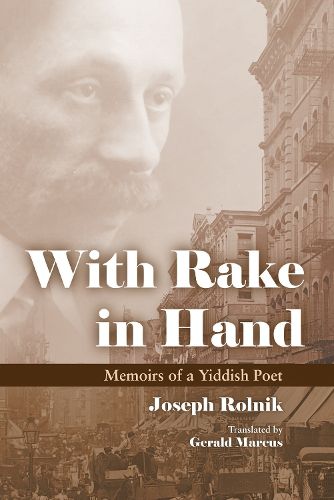Readings Newsletter
Become a Readings Member to make your shopping experience even easier.
Sign in or sign up for free!
You’re not far away from qualifying for FREE standard shipping within Australia
You’ve qualified for FREE standard shipping within Australia
The cart is loading…






Joseph Rolnik is widely considered one of the most prominent of the New York Yiddish poets associated with Di Yunge, an avant-garde literary group that formed in the early twentieth century. In his moving and evocative memoir, Rolnik recalls his childhood growing up in a small town in Belarus and his exhilarating yet arduous experiences as an impoverished Yiddish poet living in New York. Working in garment factories by day and writing poetry by night, he became one of the most published and influential writers of the Yiddish literary scene. Unfolding in a series of brief sketches, poems, and vignettes rather than consistent narrative, Rolnik’s memoir is imbued with the poet’s rich, sensuous language, which vividly describes the sounds and images of his life. Marcus’s elegant translation, along with his introduction situating Rolnik’s poetry in its literary historical context, gives readers a fascinating account of this underappreciated literary treasure.
$9.00 standard shipping within Australia
FREE standard shipping within Australia for orders over $100.00
Express & International shipping calculated at checkout
Joseph Rolnik is widely considered one of the most prominent of the New York Yiddish poets associated with Di Yunge, an avant-garde literary group that formed in the early twentieth century. In his moving and evocative memoir, Rolnik recalls his childhood growing up in a small town in Belarus and his exhilarating yet arduous experiences as an impoverished Yiddish poet living in New York. Working in garment factories by day and writing poetry by night, he became one of the most published and influential writers of the Yiddish literary scene. Unfolding in a series of brief sketches, poems, and vignettes rather than consistent narrative, Rolnik’s memoir is imbued with the poet’s rich, sensuous language, which vividly describes the sounds and images of his life. Marcus’s elegant translation, along with his introduction situating Rolnik’s poetry in its literary historical context, gives readers a fascinating account of this underappreciated literary treasure.